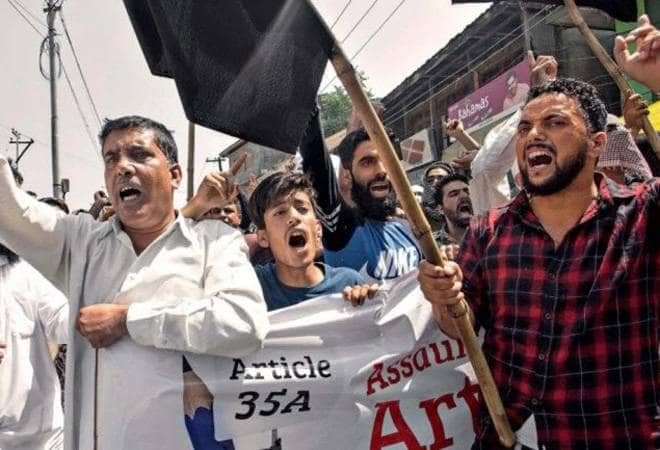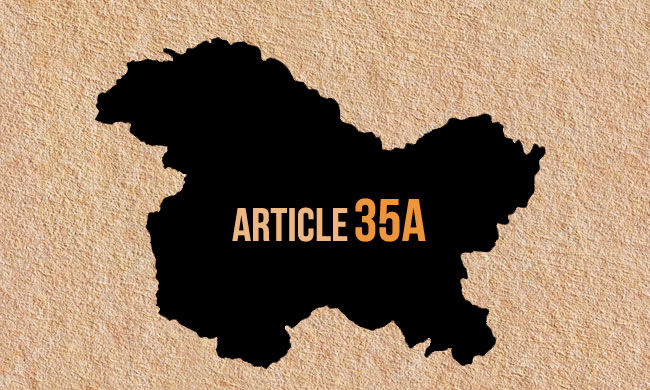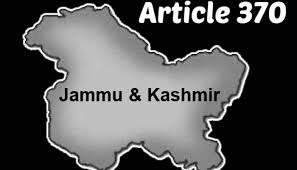As you all might know that things aren’t going right in Jammu & Kashmir nowadays. The government has planned to take off the Article 35A and 370 from the valley which means that the special right which was given to the Jammu & Kashmir people will be taken off today. This is why the people who are living in J&K are protesting as they are demanding that it should remain as it is. A lot of things are going on down there and we will update you about every detail here. Kashmir Turmoil Major Live Updates
What is Article 35A?
You all should know that Article 35A is based on Article 370, which guarantees special status to Jammu and Kashmir. Under this article, they have the power to decide who are its permanent residents are and give them special rights in government jobs, on buying property in the state, scholarships and other schemes. This is surely going to be a big thing and if this will take off today then the local people will surely show their rage to the government.
TEXT OF ARTICLE 35A
AFTER ARTICLE 35, THE FOLLOWING NEW ARTICLE SHALL BE ADDED, NAMELY:—
“35A. Saving of laws with respect to permanent residents and their rights, —
Notwithstanding anything contained in this Constitution, no existing law in force in the State of Jammu and Kashmir, and no law hereafter enacted by the Legislature of the State,—
A) Defining the classes of persons who are, or shall be, permanent residents of the State of Jammu & Kashmir; or
B) Conferring on such permanent residents any special rights and privileges or imposing upon other persons any restrictions as respects
1) Employment under the State Government
2) Acquisition of immovable property in the State
3) Settlement in the State; or
4) Right to scholarships and such other forms of aid as the State Government may provide, shall be void on the ground that it is inconsistent with or takes away or abridges any rights conferred on the other citizens of India by any provision of this Part.”
As you all might already know that according to the article 370 they have right to define “persons born or settled within the state before 1911 or after having lawfully acquired immovable property and resident in the state for not less than 10 years before that date.” Overall, it is a serious matter and it also contains that Children of women who marry outside the state lose their state subject rights.
What is Article 370?
Article 370 of the Indian Constitution is a ‘temporary provision’ which grants special autonomous status to Jammu & Kashmir. Under Part XXI of the Constitution of India, which deals with “Temporary, Transitional and Special provisions”, the state of Jammu & Kashmir has been accorded special status under Art370. All the provisions of the Constitution which are applicable to other states are not applicable to J&K. For example, till 1965, J&K had a Sadr-e-Riyasat for governor and prime minister in place of chief minister.
History of Article 370
The provision was drafted in 1947 by Sheikh Abdullah, who had by then been appointed prime minister of Jammu & Kashmir by Maharaja Hari Singh and Jawahar Lal Nehru. Sheikh Abdullah had argued that Article 370 should not be placed under temporary provisions of the Constitution. He wanted ‘iron clad autonomy’ for the state, which Centre didn’t comply with.
Provisions of Article 370
According to this article, except for defence, foreign affairs, finance and communications, Parliament needs the state government’s concurrence for applying all other laws. Thus the state’s residents live under a separate set of laws, including those related to citizenship, ownership of property, and fundamental rights, as compared to other Indians. As a result of this provision, Indian citizens from other states cannot purchase land or property in Jammu & Kashmir. Under Article 370, the Centre has no power to declare financial emergency under Article 360 in the state. It can declare an emergency in the state only in case of war or external aggression. The Union government can therefore not declare emergency on grounds of internal disturbance or imminent danger unless it is made at the request or with the concurrence of the state government.
This action was taken by the Jammu and Kashmir high court which conflicted that women married to non-permanent residents will not lose their rights. Now, if everything goes off as it seems then no one will be able to access any right. Also, this will clarify what will be the fate of J&K. Jammu and Kashmir parties say Article 35A protects the identity of the people of the state and safeguards jobs and scholarships for state subjects.
As you all might already know that Article 35A was added in the constitution in 1954 by an order of President Rajendra Prasad on the advice of the Jawaharlal Nehru cabinet. We think that whatever will happen today will decide the fate of Indian people and as well as the J&K people. Also, this will surely help the local people because they are in problem because of the terrorism in the valley.




Leave a Reply